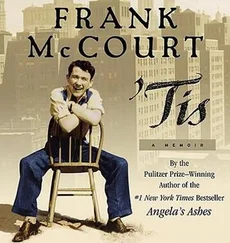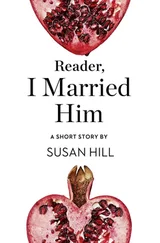Now, for those who don’t know, keening is an ancient Celtic expression of grief or sorrow, usually heard at a time of death. It is expressed by a high-pitched wailing sound with mourners beating breasts and giving vent to the odd shriek in the middle of the wail. While it was not quite the full frontal keen, the mother did a fairly good job moaning about what would happen to the other children, Siobhan and Malachy. If I couldn’t look after them, how was I going to look after the new one?
There is nothing more aggravating than someone giving voice to your own unspoken fears.
We weren’t doing well financially, and we were trying to cope with raising a handicapped child. Plus, I’d made a haimes of my role as father to Siobhan and Malachy, so I had my own doubts. I contributed what I could, but Linda took care of our children largely with money she got from her parents, who had quite a bit of it. Having settled in with Diana, I saw Siobhan and Malachy, now six and five, most weekends, but I was as apt to bring them home and then go out, leaving their care to Diana, as I was to stay and give them any of what they needed from their father. During their earliest years, I had been completely absent a good amount of the time, sometimes just too drunk to show up.
But the mother Angela was never comfortable with the women any of the sons married anyway, and announcements of pregnancies only served to deepen her gloom that liaisons were going to be on the permanent side. Yet when babies shouldered their way into the world, the mother became most maternal and loving, at least until the little ones reached the age of two or thereabouts. At that point, they got a bit of independence and she’d shift her attention onto the next infant.
On the evening of the thirteenth of October 1965, Diana announced that there were certain movements within her body that indicated a desire on the part of someone to take his leave of the womb. So it was off to the New York Hospital with us. We had taken some Lamaze classes with a lady named Elizabeth Bing, the natural childbirth guru, and for the first time, I had the sublime experience of watching the new life make its entry into our orbit. It was a boy, whom we named Conor Turlough. He was a long lithe fellow, and of course the most brilliant baby in the nursery.
N ina, my stepdaughter, wasn’t making much progress, andthe experts were now saying she was very retarded. She sat for long periods of time, crinkling cellophane paper from cigarette packs and rocking back and forth. She was for some reason terrified of solid foods, so even when she was six we were still getting her jars of baby food and spooning it into her mouth. It occurred to me that as she had all her teeth and seemed otherwise in good physical health, perhaps some solid grub might be in order.
I apprised Diana of my intention and suggested she absent herself and Conor from the house, as I didn’t think it was going to be quiet or pleasant getting Nina to eat the hamburgers I’d prepared. (Were I doing it today, I’d probably select rice and beans or tofu, as I’m a vegetarian, on health grounds.) I sat Nina on a chair at the kitchen table, tied a large apron round her neck, and spread out some newspapers on the table and on the floor, and so began the battle.
I’d made about eight medium-size burgers, which I broke into bite-size pieces. I popped the first piece into Nina’s mouth, where she allowed it to rest for a brief moment. When she realized what I’d done, her eyes opened up wide with fury and rage at this big person who’d forced foreign matter into her mouth. She let go with a yowl and spat out the offending morsel, which landed on my shirtfront, leaving a stain before descending to the floor. She quieted down, and I tried again, putting another piece of hamburger in her mouth, all the time speaking as softly and as soothingly as I could. Same result: Out came the meaty projectile, which just dropped to the floor. We sat for a while, me doing all the talking, as Nina did not and does not have speech.
Nina made no attempt to get off her chair, nor did she keep her mouth shut tight to prevent me popping in the food. There were times during this hour-long battle that I was sure I was being bamboozled by this child, as she yowled without conviction, and her resistance was confined to spitting out the food. She’d sometimes have a look of disdain and amusement at this hulk of a man trying to feed her. Somewhere I had read that Annie Sullivan, who took on the task of teaching Helen Keller the rudiments of ordinary societal behavior, had had a similar siege and, heartened by that thought, I continued the routine. Pop, spit, talk. Pop, spit, talk. Pop, spit, talk. The kitchen floor and table were littered with hamburger. Splatter after splatter, it appeared soon enough as if it were raining hamburger meat in the kitchen.
I was about to admit defeat and sue for terms of surrender when my doughty and noble opponent decided to have mercy on me. She retained a chunk of burger behind closed lips and smiled her Mona Lisa smile at me, still not swallowing, but after a long, long interval I noticed little movements that indicated something was headed toward the stomach, and that’s how Nina ate solid food for the first time in her six years of life.
But this small step forward with Nina was just that and no more. With the new baby, Diana was overwhelmed, and there wasn’t anywhere we could turn for help. There were no day programs suitable or, indeed, willing to take Nina. When we tried to take her out, she would stage screaming sit-down strikes on the sidewalk. We began to think about permanent residential care.
It is not an easy or simple decision to admit that you cannot raise your own child, but in the end, that is what we did. We found a small home in New Jersey run by a very kindly, bright lady and, soliciting all the financial help we could from family, we arranged for Nina to live there.
It was a bright, sunny day driving out there, but it was hard to appreciate as Diana was teary-eyed and heart-sore at the prospect of parting with Nina. It was hard for me, too, as I’d become very attached to this sweet, trusting child. Nina played quietly in the backseat, not knowing she was heading for a totally new life. When we dropped her off, we saw that a couple of the other kids were similar to Nina in age, condition, and behavior, something we took a bit of comfort from, because we figured Nina would not be an unknown quantity. In a sense we were now free—free to be married, to travel about, to go out, to be parents to Conor—but the price was high. As we drove away, we stopped to look back and saw Nina with her new mentor, standing on a rise outside the house, the sun lighting up her face and turning her blond hair to a light, golden aura. We both wept, because no matter how often we visited her, we knew that child would never live in our home again.
D iana’s sister, Heidi, had married her high school love,Warren Washburn, a Marine, and they had become parents to Kelly, a brilliant little girl. Being married and a parent was no barrier to service in Vietnam, though. Warren, a charming, gregarious, devil-may-care sort of lad, assured Heidi and his family that there was nothing to worry about, a statement which can be depended upon to cause a lot of worry.
I don’t know why I felt so strongly about that war, particularly as I didn’t have to go there and slog it out myself, but I did. The French had treated the people abominably, with the usual colonial torture and murder, and then pulled out, leaving the U.S. to carry on the savagery. Of course, being steeped in Irish history and the brutal centuries-long occupation of Ireland had an influence on me. Colonial powers were always brutal, I knew, from what I’d seen and heard growing up, and what the French, and later the U.S., did to the Vietnamese seemed to me little different from what the English had done in Ireland. Indeed, I could never understand Irish people who supported that barbarous and diabolical attempt to bomb poor people into accepting an alien culture.
Читать дальше












